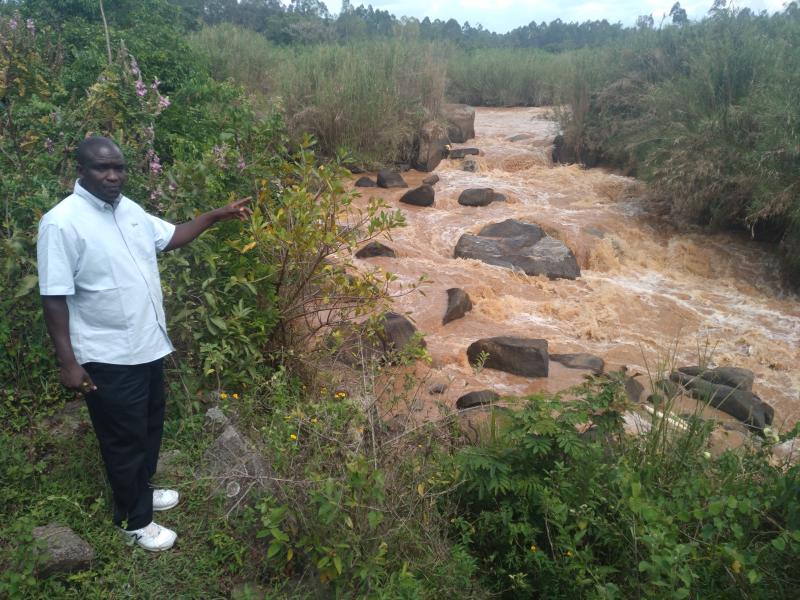×
The Standard e-Paper
Kenya’s Boldest Voice

Ndanu falls in River Yala Gem Siaya County where dead bodies are normally dumped in sacks. [Collins Oduor, Standard]
Last week’s revelations that over 20 bodies were found dumped in River Yala stunned the country. Some of the bodies had signs of torture, such as head wounds and broken limbs. A man who has been assisting in retrieving the bodies said that 10 of them were dumped in gunny bags at a go. In addition, he noted that two different vehicles had been observed periodically dumping the bodies.